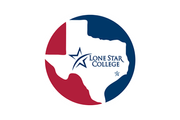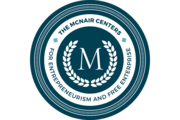
ElecTrip co-founder and CEO Mandeep Patel didn’t want to be an entrepreneur at first. He’d had plenty of experience watching his dad attempt to get businesses off the ground, only to move on to another project when hurdles came up.
But in 2020, the Cypress native and recent University of Texas at Austin graduate was staring down the same barrel his father once had. In the space of a few months, the electric vehicle shuttle startup he founded had gone from a monthly growth rate of 30% and nearly $700,000 in revenue to losing nearly 99% of its business due to the Covid-19 pandemic.
“All of the pain that existed in my past, I could now see in my future,” Patel said in an interview with Houston Inno. “At this point in my life, I truly was the most depressed I have ever been.”
Patel also saw struggles away from the business involving relationships, but the tipping point came due to the 2021 death of a close friend and fellow entrepreneur, Dakota Stormer, who founded education startup Footprint.
Although he had tried to avoid the impact of Stormer’s death, Patel soon found himself running Footprint as an interim CEO. Stormer’s family had asked Patel to help continue the business, considering him the person who best knew Stormer’s wishes for the company. The experience was enough for Patel to get back on his feet and make a return to ElecTrip.
“[Dakota's] mom reaches out to me in May of 2022; she's like, 'Look, I don't know what's going on with the company, but I can't let it die,'” Patel said. “Finally, after that experience, I felt competent again because I was like, I can do this.”
ElecTrip relaunched in 2023 at a valuation of approximately $2 million, and Patel said the company had raised enough private investment to purchase 12 Teslas and to hire six full-time employees. Patel could not disclose the funding source or the exact valuation but said the investors were based in Houston and had a vision of ElecTrip operating 150 cars by 2025.
ElecTrip’s business model is mostly the same as it was when Patel first launched the company in 2019: High-level corporate clients can rent a car and driver for inter-city commutes between Texas’ major cities.
Patel said using electric vehicles means lower maintenance costs for the business compared to combustion-engined cars. The cars are also eligible for tax deductions when used for business purposes, and Patel said Tesla was chosen ahead of other manufacturers and models because most charging infrastructure is tailored to Tesla vehicles.
The biggest change for ElecTrip’s business model is how people approach commutes, according to Patel. In 2019, the company relied on practices he called “unscalable,” such as in-person surveys, to isolate the perfect customer. However, Patel believes the pandemic’s changes for corporate travel mean more people will live farther away from their workplace, meaning regional commuting for remote workers is now a target market for ElecTrip.
“In 2019, if you had somebody that was traveling, they were traveling seven, eight times a month for business travel, so twice a week at times,” Patel said. “Now as less people want to travel, we have less value per customer but more customers coming in. We have an Austin-based client that used to have their senior leaders travel to Houston 30 to 40 times a month — now they have 40 or so workers in Houston traveling once or twice a quarter to Austin.”
Other ways ElecTrip is working to expand include the EV and autonomous vehicle infrastructure space. As companies begin to roll out so-called “robotaxis,” or self-driving taxi services, Patel said ElecTrip plans to offer a niche for companies to charge and service their cars. General Motors-backed Cruise LLC opened a waitlist for people to use its autonomous taxi service in Houston and Dallas in May, and the company already operates in Austin.
Asked how he was feeling about returning to the business, Patel said he was still unsure about how successful he could be, but he believed returning to try again was better than giving up entirely.
"The way I look at it is like, I don't know if I'm going to be able to make this work,” Patel said. “But I love my team. I know that people love the product. And I know that if I don't try 100%, it's because I was scared of not being enough.”





